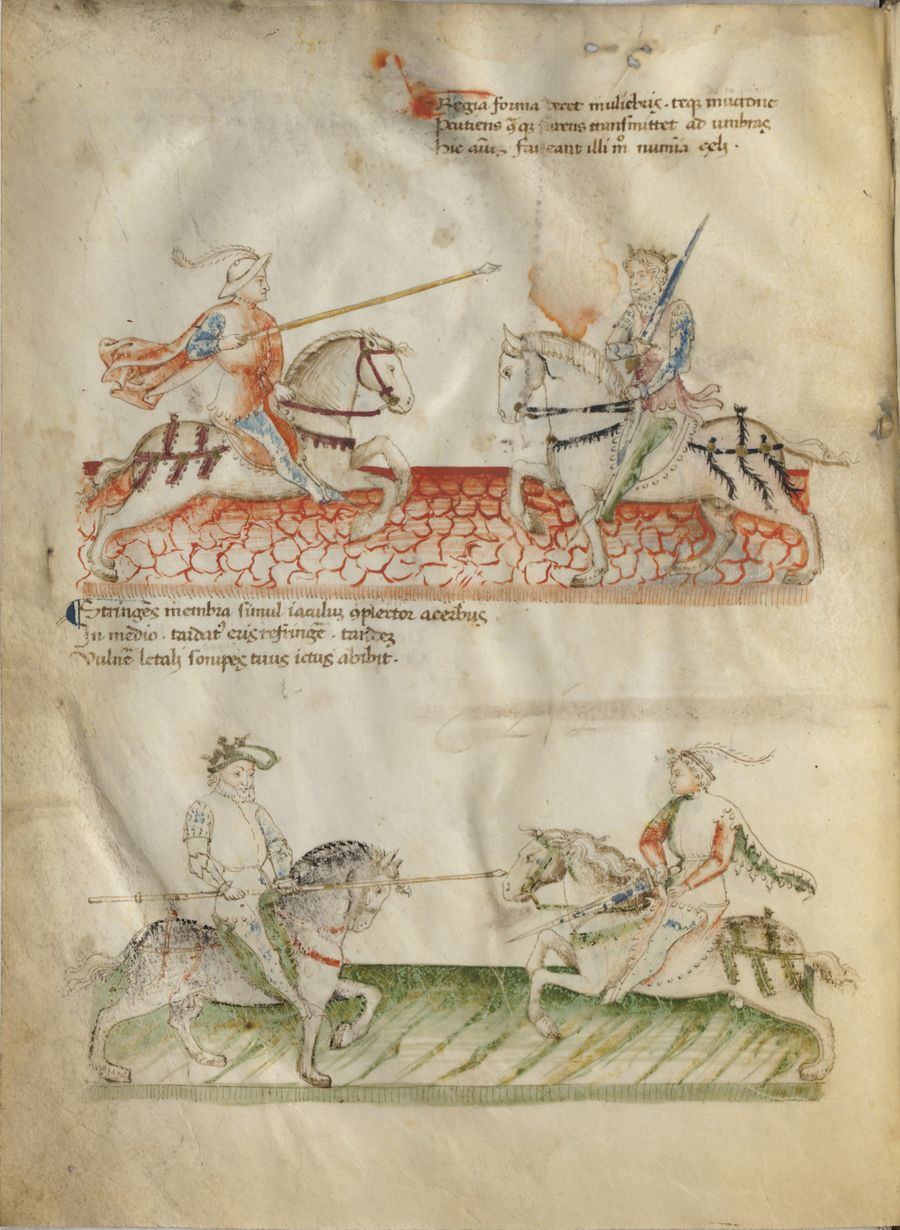|
|
You are not currently logged in. Are you accessing the unsecure (http) portal? Click here to switch to the secure portal. |
Difference between revisions of "User:Kendra Brown/Florius/English MS Latin 11269 02v"
< User:Kendra Brown | Florius
Jump to navigation
Jump to search
| Line 8: | Line 8: | ||
|- | |- | ||
| | | | ||
| − | + | I'll beat your lance with my sword, <br/> | |
| − | And with either the point or the edge | + | And I'll wound you with either the point or the edge. <br/> |
| {{section|Page:Pisani-Dossi MS 30b.jpg|30b-b}} | | {{section|Page:Pisani-Dossi MS 30b.jpg|30b-b}} | ||
|- | |- | ||
| | | | ||
| − | At mid-lance | + | At mid-lance I come, well-enclosed like this, <br/> |
| − | So that you | + | So that you'll be delayed in beating my lance. <br/> |
| − | I | + | I believe I'll strike your horse without fail; <br/> |
| − | You | + | You'll see my play carried out hereafter. <br/> |
| {{section|Page:Pisani-Dossi MS 31a.jpg|31a-a}} | | {{section|Page:Pisani-Dossi MS 31a.jpg|31a-a}} | ||
|} | |} | ||
Revision as of 19:30, 10 September 2024
Latin 02v
- ¶ Regia forma decet muliebris. teque mucrone[1]
Percutiens contra que furens transmittet ad umbras
Hic animus / faveant illi modo numina caeli.
¶ Stringens membra simul, iaculum complector[2] acerbus
In medio. tardatus eris refringere[3] tandem
Vulnere letali sonipes[4] tuus ictus abibit.
Italian
|
I'll beat your lance with my sword, |
[30b-b] Cum la spada tua lança io rebatero |
|
At mid-lance I come, well-enclosed like this, |
[31a-a] A meça lança io vegno acossi ben asserato |
English 2v
¶
¶
- ↑ Added later: "de la pointe".
- ↑ Added later: "remoror [!] jaculum".
- ↑ The translator appears to be using 'stringere-refringere' as a pair, as both words are associated with defending and attacking fortified gates, for rhetorical effect; however, English doesn't have a good oppositional pair that also conveys the meanings of the words.
- ↑ Added later: "eqqus". Probably meant to be “equus”, but the two q’s are fairly clear.

